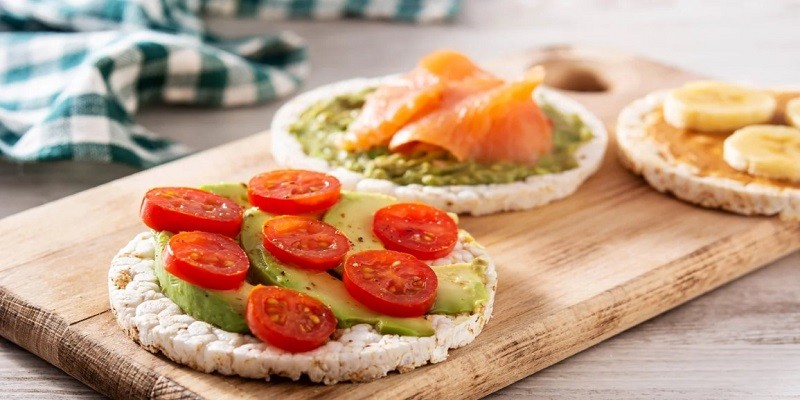Yes, you can eat rice cakes while pregnant. They are generally safe when consumed in moderation as part of a balanced diet. However, it’s important to consider their nutritional content and any potential risks associated with additives or high glycemic index.
Pregnancy is a crucial time for both the mother and the developing baby, making dietary choices particularly important. Many expectant mothers wonder about the safety and nutritional benefits of various foods, including rice cakes. This article explores whether rice cakes are a safe and healthy option during pregnancy, delving into their nutritional value, potential risks, and safe consumption practices.
What is Rice Cakes?
Rice cakes are a popular snack made from puffed rice that is compressed into a cake form. They are often chosen for their low-calorie content and versatility, as they can be topped with various ingredients such as peanut butter, fruits, or cheese. Rice cakes come in different flavors and varieties, including plain, salted, and flavored options, making them a convenient snack for many people.
Nutritional Value of Rice Cakes
| Nutritional Value | Details |
|---|---|
| Calories | Approximately 35-40 calories per rice cake |
| Carbohydrates | Around 7-8 grams per rice cake |
| Protein | About 1 gram per rice cake |
| Fat | Less than 1 gram per rice cake |
| Fiber | Minimal, usually less than 1 gram |
| Vitamins and Minerals | Generally low, though some may be fortified with vitamins and minerals |
Risks of Eating Rice Cakes During Pregnancy
| Risks | Details |
|---|---|
| High Glycemic Index | Can cause rapid spikes in blood sugar levels |
| Low Nutritional Value | Limited vitamins, minerals, and fiber |
| Additives and Flavors | Some flavored varieties may contain artificial additives and high sodium levels |
| Arsenic Content | Rice can contain trace amounts of arsenic, which is harmful in large quantities |
Safe Ways to Eating Rice Cakes During Pregnancy
To safely enjoy rice cakes during pregnancy, opt for plain, unsalted varieties to avoid excess sodium and artificial additives. Pair them with nutrient-dense toppings like avocado, hummus, or fresh vegetables to enhance their nutritional profile. Moderation is key, so incorporate rice cakes as part of a balanced diet that includes a variety of whole foods.
Alternatives to Rice Cakes During Pregnancy
| Alternatives | Precautions |
|---|---|
| Whole Grain Crackers | Check for low sodium and whole grain content |
| Fresh Fruits | Ensure they are washed and organic if possible |
| Vegetable Sticks | Pair with healthy dips like hummus or yogurt |
| Nuts and Seeds | Consume in moderation to avoid excessive calorie intake |
Experts Tips
- Choose Whole Foods: Prioritize whole foods over processed snacks like rice cakes for better nutrition.
- Monitor Blood Sugar: If you have gestational diabetes, be cautious with high glycemic index foods like rice cakes.
- Read Labels: Always read the ingredient list to avoid additives and high sodium content.
FAQs
Can rice cakes cause gestational diabetes?
Rice cakes have a high glycemic index, which can cause blood sugar spikes. If you have gestational diabetes or are at risk, it’s best to limit your consumption and opt for lower glycemic index foods.
Are flavored rice cakes safe during pregnancy?
Flavored rice cakes may contain artificial additives, high sodium, or sugar. It’s safer to choose plain varieties and add your own healthy toppings.
How many rice cakes can I eat per day while pregnant?
Moderation is key. Consuming 1-2 rice cakes per day as part of a balanced diet is generally safe. Always consult your healthcare provider for personalized advice.
Can rice cakes help with pregnancy cravings?
Yes, rice cakes can be a convenient snack to satisfy cravings. Pairing them with nutrient-dense toppings can make them more satisfying and nutritious.
Are there any rice cake brands recommended for pregnant women?
Look for brands that offer plain, unsalted, and organic rice cakes to minimize exposure to additives and potential contaminants. Always check labels for ingredient quality.
Conclusion
Rice cakes can be a safe and convenient snack during pregnancy when consumed in moderation and paired with nutrient-rich toppings. While they offer a low-calorie option, it’s important to be mindful of their high glycemic index and limited nutritional value. By making informed choices and consulting healthcare professionals, expectant mothers can enjoy rice cakes as part of a balanced and healthy diet.

